what I wrote in 2024
Writing can sometimes feel like sticking toothpicks under my fingernails. It's doesn't feel nice while I’m doing it and I don't really know why I continue. Most of the time, I'm surprised at the things I wrote. Often they're far worse than I would've expected them to come out. Occasionally, they’re better. I almost want to say, what's the point in that? It's barely like I wrote it. It's like they're written by somebody else. It's almost like I don't even get to enjoy the fruits of my own labor. It's more like I do the labor, and then some strange fruit spawns that seemed to have little to do with what I was writing.
I can imagine a lot of people feel the same way, even if they don't write regularly. In fact, it's this strange quality of writing that probably keeps a lot of people from ever attempting it seriously. The you that speaks and thinks throughout the day is simply not going to be the you, the authorial voice, that shows up on the page. And you have to get used to that, the only way you get used to anything—practicing it regularly.
At this point, I'm surprised at my writing abilities. I never had particular aspirations to be a writer, especially of non-fiction. But I set myself the goal, this year, of putting up a few things per month this site. As I reread what I wrote in the past year, I feel as if a significant improvement can be seen. So at the end of this fine and horrific year of 2024, I'm going to reflect a bit on what writing this blog has been like.
Before 2024, I wrote 15 pieces on here, over the course of two years. I was still figuring things out. I wrote a few on things related to writing, a few on film, and some that dipped into the realm of philosophy. This is the best way to start a blog. Just write random things until you find the stuff that sticks. Don't restrict yourself to a single topic. Come January 2024, I was confident that I actually had a vision for the sort of blog that this would be. I found (I think) an authorial voice that is personal and information-dense but unpretentious. I discovered that if I put myself in the right context, with ample time, I could sit down and produce some sort of written thing.
This year, I produced 33 of these written things. Mostly non-fiction essays, but I mixed in a few short stories, too. I covered a whole host of topics, form digital minimalism to the scientific method, from the history of film archives to the history of the Jehovah's Witnesses. Many mistakes were made along the way. Many obscure facts were elucidated. I bought a flip phone. I got off social media. I finished grad school. I got married. 2024 has been, without doubt, the best year of my life. (I know I'm in the minority with that statement)
I feel a bit pretentious about writing about my own writing but, then again, I am doing it for the purpose of summarizing what I've talked about and learned over this past year. I’m trying to make things as clear and accessible as possible. And like a professor of mine once said, metacommentary, self-reflexivity and the like might just be exactly what makes us human—perhaps it is just how we complete actions. We close the loop.
First of all, the most popular essays this year were the following:
1. history will never repeat itself
2. I will delete all of my social media Jan 1 2025
8. why I watch a movie every morning
10. that rare thing called balance
I'm struck, when I see them laid out like this, by the topic that is clearly the most popular on my blog so far: digital minimalism. This was never something I set out to write about, I certainly didn't have it in mind for my film related blog. And yet, when I write about it, I think it really resonates with people. The second top subject was probably religious studies. This seems somewhat poetic, especially considering this blog primarily exists to discuss film history. The things people seem to care about, at least on this tiny little corner of the internet, is getting out of nihilistic modes of thought. Both in terms of people's cynical and destructive usage of digital technology and on some deeper level, something that touches on peoples' philosophical and theological views. And I think this trend is reflected on Substack in a broader pool of data. People are flocking to sites such as these as a way to catch a breath from the chaos, to rise above the muck for just a bit and wonder to themselves just what the hell is going on, and what the hell life is all about. Now, Substack is full of its own muck as well, and the most popular subject on this website is and will always be politics (sadly, in my estimation)... But almost every blog I come across on here seems somewhat reflective, disillusioned, and whet the reader into a further detachment from services offered by the likes of Meta. Because short form writing, video creation, etc. has become the de facto mode of consumption, something like a longer essay inherently has a reactionary quality to it (not in the Marxist sense, at least not entirely). The cultural developments and debates are now happening on TikTok and YouTube Shorts while things like Substack are where people go to see the response to these developments. Cultural hullabaloo now happens in rapidly spinning rolodexes rather than carefully calculated broadcasts. So it makes sense that my writing about things relating to digital minimalism reach out a bit father than my usual fare. It's simply what's in the air on a platform like this, right now.
The most predictable example of this kind of writing on my blog, perhaps the most staid thing I've written so far, is my post about deleting my social media. I was sort of trying to just make an announcement, but it seemed like my stating the obvious—in terms of why I think social media, as of now, is not good—was more compulsively readable/clickable than most of my stuff. In terms of what I actually wrote on the subject, my first essay in this realm was “Am I Anti-Social Media or Just Anti-Social?”, which was an exploration of some of my feelings around how internet usage habits have transformed form being a fun way of exploring human culture, to a way to disengage from culture and antagonize it. A big part of this post was exploring the legacy of 4chan, and rather than seeing it as the "outsider" platform, I tried to conceptualize it as predictive of the future direction of social media:
despite the fact that 4chan has a particularly infamous reputation, I would maintain that almost all of the social media platforms have become 4chanified now. Political outrage and offensive content rises to the top, pornography is impossible to avoid (it’s even in the ads now) and it is more than acceptable to slander and attack other users online. 4chan was an extreme end of the internet, but it was really only ahead of its time. I’ve seen things on facebook, Instagram, and twitter that are most definitely illegal, and I saw them entirely unprompted by way of “the algorithm.” How is it that they are still sites that I am _expected_ to have as a normal human adult?
I wrote that essay while flying back home to Oregon for the holidays. Then, during my time at home, I committed to the idea of getting a flip phone. I decided, quite simply, that I've spent enough of my life staring at a screen already. Anything I can do to cut down on that will probably enrich my life. My essay unliberated from boredom, (probably the post that earned me the largest influx of subscribers) talked about my experience of getting a flip phone and embracing the boredom that comes with it. I'm glad it drew in a lot of people, because it felt like a nice balance of discussing digital minimalism from my perspective as a film enthusiast... Films that I watched that got me used to slower ways of thinking, helped the idea of disconnecting from the smart phone appealing:
I love a good, slow film, a long book, I like just sitting outside and looking at squirrels rush up trees and Upstate-New-Yorkers honk at each other. I learned how to meditate through film, I was encouraged to read again through film, and I found my way to spirituality through film. Boring films helped me slow my life down. [...] Phones exist to encourage connections and communication with others, and the more I use it for that purpose and call people, the more I have begun to spend time with those people, one-on-one, in-person.
You might be wondering if I still use a flip phone. I do! I still really, really like my Cat S22 Flip. One of the things I anticipated about using the phone that turned out to be true is that the form determines the function. By using a phone that is designed to specifically be used for calling people, and that makes texting inconvenient, I have called people far more often! I have gotten into the habit of calling someone on my walk to work and calling someone on the walk back. It is a great way for me to connect with people, be they friends I keep in close contact with, or friends that I haven't hit up in years.
While I unplugged from the smart phone brainrot, I still struggle with my social media usage, as I’d access it on my laptop and it’d consistently disrupt my day. So I’ve decided to ditch it going into this new year. My post I will delete all of my social media Jan 1 2025 explanation of why. In it, I focused a bit less on the experience of using social media, and more on the ill-intentions of the corporations that run them. It's probably the angriest thing I've posted here. But I will continue to speak out about the negative effects these companies and products have, because it works. Just as I've improved my life by getting off social media and by using a flip phone, several people have told me that I inspired them to delete their accounts or get a flip phone (2 friends of mine now own the Cat S22 specifically!) This is quite heartening. It's almost enough to convince one that the things we say and do effect other people.
Speaking of which, one other theme that emerged from my writing this blog over the past year was that of religious literacy: the willingness to engage with religious ideas with curiosity rather than resent, the active attempt to learn more about religion from a diversity of sources, and so on. This is something I always hesitate to talk about in-person unless I get to know someone really well. In my head, everyone is either Richard Dawkins or Joel Osteen in disguise; as if everyone has completely formulated thoughts on religion and will be ready to lecture me at a moment's notice. Yet, consistently, the reaction I most often get from people is that "I haven't thought about it [religion] much". People just don't talk about these things very often. Whether they are religious or not. And when they do, its either through snark or smarm. Not dialogue. My first piece that touched on this was this ever-fraying pantheon, though I had poked around the topic several times before... Such as in my piece on "the great disappointment" or my essay about the little-known fact that the first sound film was made by the Jehovah's Witnesses.1
I find that, especially in the world of cinephiles, people are terribly underinformed on just about every religion that slumped across Earth. So I thought putting up a few pieces on the subject (even if they don't relate to film at all) could give my blog a unique angle. This was part of why I put up my whole paper on Paradise Lost and its influence on modern understandings of Christianity, "The Genesis of the Modern World". But this interest really became fused with my interests in film, preservation, and philosophy in my essay on canonicity. I think it's probably among the best things I've written so far. I feel like my authorial voice is pretty unique and the info I share is little-known. Particularly the way that I point out the biblical books excluded by the Western canon that were kept in Eastern canons. I am proud of the section where I tie the idea of canonicity to our constructed narratives about reality, which is something I think is pretty original:
Choose our reality, based on opinion, conjecture, and trend? As if we should be so lucky. That was the task of the protestants. Now we are all our own pope and our personal vaticans are stuffed to brim with encyclicals. We are uncertain which narratives to accept, we are only certain of which narratives to reject.
Even after this, I kept harping on the point of religious literacy. It was another point where my passions met with a receptive audience (a small one, of course). So I wrote about it in a more personal way in on talking about religion and then I more fully opposed the anti-religious arguments/conspiracies that keep popping up in American culture in my piece the apatheistic consensus. This subject of religious literacy is one I will probably explore further, as I'm always reading stuff on various religions. I'm so enmeshed in it, that I forget other people don't know about, like, the similarities between many sayings of Jesus and Buddha. Religion, in general, is a subject that's endlessly fascinating to me, and one that is often thought of as mutually exclusive from discussions about film history. So I’m trying to remedy that, in my own little way.
In regards to film history, I went down many, many strange and wondrous rabbit holes. I began the year by fusing my interests in hiking and film, into a history of "trail movies". I wrote about my movie-watching habits and about whether I should decrease it a bit. I also talked about my experience of helping to run a film festival dedicated to film preservation. That essay, "films that explode", by the way, is probably the wildest piece I’ve written.
I wrote just a bit about film preservation, which is (supposedly) the subject on which I am most knowledgeable. If you want to read about that, the best place to start is “on the archive paradox”. I hope to write about stuff relating to film archives more, but since it’s part of my job, it actually kind of demotivates me from writing about it in my spare time. If anyone is curious about film projection, restoration and so on, shoot me any questions you have. It might result in a post dedicated to it.
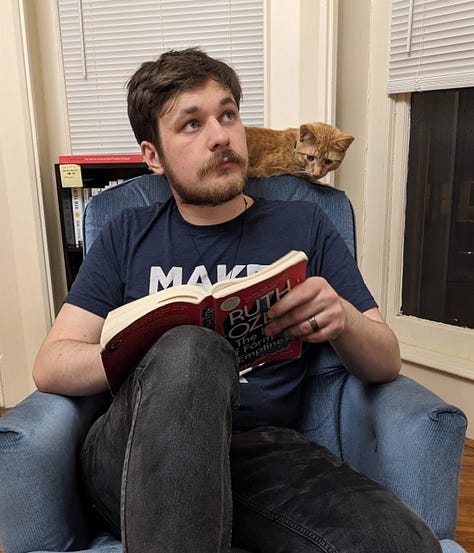
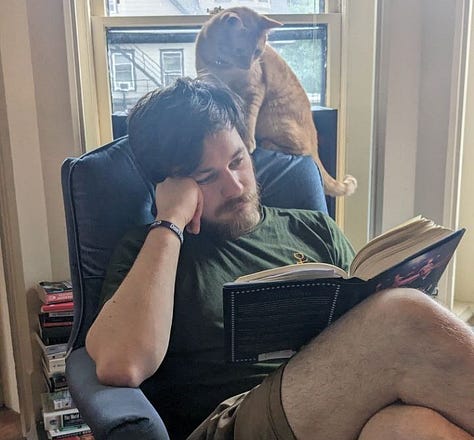
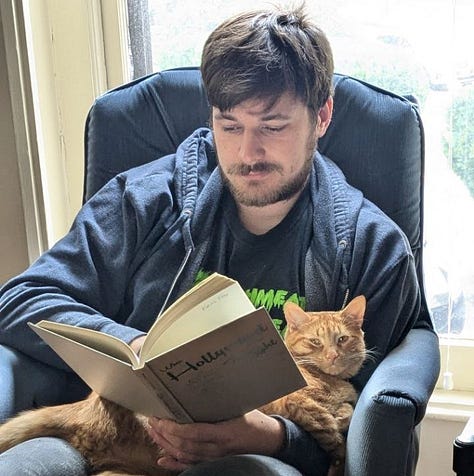
Part of my vision for this blog is to put up something every week that is worthwhile and significant. I don't just want to rehash the same points over and over again, and I don't want any essay to just be about how good or bad a movie/book/whatever is. Therefore, I am not going to turn this into a film review outlet nor a film analysis column. I want to focus on film history and I want to focus on philosophy—all while not veering into the endless pit of pretentiousness. Considering this, I think I did a good job at writing about something like the history of found footage films and not getting too caught up in the pop culture-y aspects of it, instead, I tried to hone in on the philosophical implications of found footage as a form. Whenever I'd read about found footage, everyone was focused on the handheld camera work and the believability—to me, what is interesting about the genre is that it wishes death upon its own protagonists. Not in the sense of a formal tragedy, but in the sense of self-destruction:
The found footage film's job was to convince its audiences of its absolute authenticity, even to the point of the cameraperson's death. It was a self-destructive cinema, it was a suicidal cinema, and it printed money alongside poor reviews. It was the grindhouse of the 21st century.
I even found a way by the end of that piece to tie it back to digital minimalist arguments, as I drew out parallels between self-destructive media and hatewatching:
Could it be that the mondo genre was lying dormant in our culture, waiting to be reborn? Now that the mainstream social media platforms have made ad revenue and user retention the ultimate end, they have become grindhouses themselves. The mondo genre has been reborn and is now live and well— just as Mondo Cane showed you geese bring funnel fed to be used for foie gras and women in New Guinea who gain weight to be offered as wives to a dictator, now you can open up the the homepage of TikTok and see nudity, killings, and mutilations.
I surprised myself with this conclusion! And this is part of the fun of writing. You don't really know what you think until you write it out. I feel as if this is the beginning of me actually thinking in writing. And I feel like I've only begun to see its exciting potential in my life.
Beyond this, I also wrote quite a bit about writing itself, such as in writing the storm out and the nitty-gritty of my writing process. Another recurring topic was that of video game preservation. This was a natural outgrowth of the writing of my thesis, which I've put up bits and pieces here, but which I will put up in its entirety on my blog, come next year.
We talked about what writing was most popular, but what writing was my favorite? I think my blog, so far, has been at its best when it fuses reflections on media with philosophy of a personal and casual sort, Chestertonian style... In this regard, my essay that rare thing called balance is one of my favorites. I use the brilliant film Perfect Days, to discuss daily routines and living a balanced life. Likewise, the myth of the controlled environment linked Phase IV to concepts of philosophy of science in a way that I hope is very approachable. And then in consider the pelican I talk about some very in-the-weeds technical film projection stuff, but link it to how we think about our own perception. By far, however, looking up from below was the piece of non-fiction I put the most of myself in...
In terms of fiction, I didn’t share even a fraction of what I’ve written, but I did put up 3 short stories. “Pericope Adulterae” is a Borgesian take on the mind-altering effects of studying Paradise Lost, and discusses the concept of translations getting closer to the truth, rather than further away. “The Games We Play” is about families, board games, and how we use entertainment to deny ourselves the weight of reality. Finally, “Microcontroller” is about fetishization, surveillance, and the way that the act of seeing can be exploitative.
I started Lost in the Filmhouse back in November of 2022. The real reason I started it was because a friend of mine died. He was an incredibly intelligent and kind person. And while I still miss him, I am still able to listen to podcast episodes he was on, I'm able to feel like I can talk to him, like I can still gain some insight from his brilliant mind...
I thought about this and I thought about the uncertainty of my own life. Of how I could die on any day of the week and whether I could really die happy knowing that all my ideas never made it out of my mind. And something my friend talked about, the way that ideas ripple through the world, kept bringing me back to the prospect of sharing my writing. I I explicitly stated this intention in my first post, "Loomings":
I mainly want to just have a website of some sort and put all my stuff in one place. I’ve made a habit of spreading my work over obscure accounts, which helps no one. The ultimate reason for making a website like this is quite simple. I’m doing it for those I love. So that when I die, there’s a place where I’ve collected my thoughts and reflections. I’ve known too many thoughtful people whose works and thoughts I wish I could just have in one place and keep with me. Maybe somehow this can serve that sort of function for now.
Reading that now, I can clearly see how little confidence I had then, in comparison to now. Writing has genuinely improved my life. Everytime I write a new piece, it feels like my brain just got a little bit cleaner. My life, a little more complete. Just like a bachelor's fridge, I used to let things stew and mold, unused. Now, when I get an idea, I actually write it! It just feels right. So I'm going to keep writing. Because I think I will keep getting better at it.
In my second-ever post, “a place to think freely”, I talked about my ideal of the “Penguin Cafe”, of a place “where we can come together and talk. Where ideas flow freely”. I feel like I’ve stumbled my way towards something like this. I’ve gotten interest from people of various backgrounds. I have a small but engaged readership. I feel as if there’s no particular thing I have to write about. I can let the ideas flow freely.
What's on the horizon? Well, I've got lots more film/philosophy/religion/history essays as drafts. So you can certainly expect more of that. I have a few more papers from college that I want to touch up a bit and put on here. I really want to achieve that 1-piece-per-week flow this next year. Because the more I write, the more I am able to write.
And, speaking of which—I've now written six chapters of my second novel. I'm very excited about that, and I can see that my writing quality has improved immensely in comparison to my first. While I will probably not put that online, I will probably write about the process a bit next year. I'm aiming to write the whole thing in half a year or so. I don't have a set length in mind. When I finish, I'm debating whether to send it to traditional publishers or to self-publish. I kind of hate the publishing industry right now, but I also kind of hate the self-publishing industry. So maybe a small press is the way to go, but I have also entertained the idea of selling it in the most direct way possible: by learning to book-bind and handmake every copy. I think that would be a cool way to avoid supporting Amazon. So, naturally, book-binding is a hobby I am considering picking up this coming year.
The idea of making every book by hand might sound ridiculous to you but, you have to understand, I am writing to simply write. It's a hobby, a craft. There's no precise amount of success I expect to receive from it. I just cherish the process. And I hope you cherish the craft of your choice likewise.
Here's to a good 2025.
In fact, both of these pieces were highly related, as they were born out of my fascination with the aforementioned "Photo-Drama of Creation" which led me to the weird history of the second great awakening. And once my roommate casually mentioned that people gathered for the "great disappointment" not far away from me, I tumbled down a rabbithole of research.


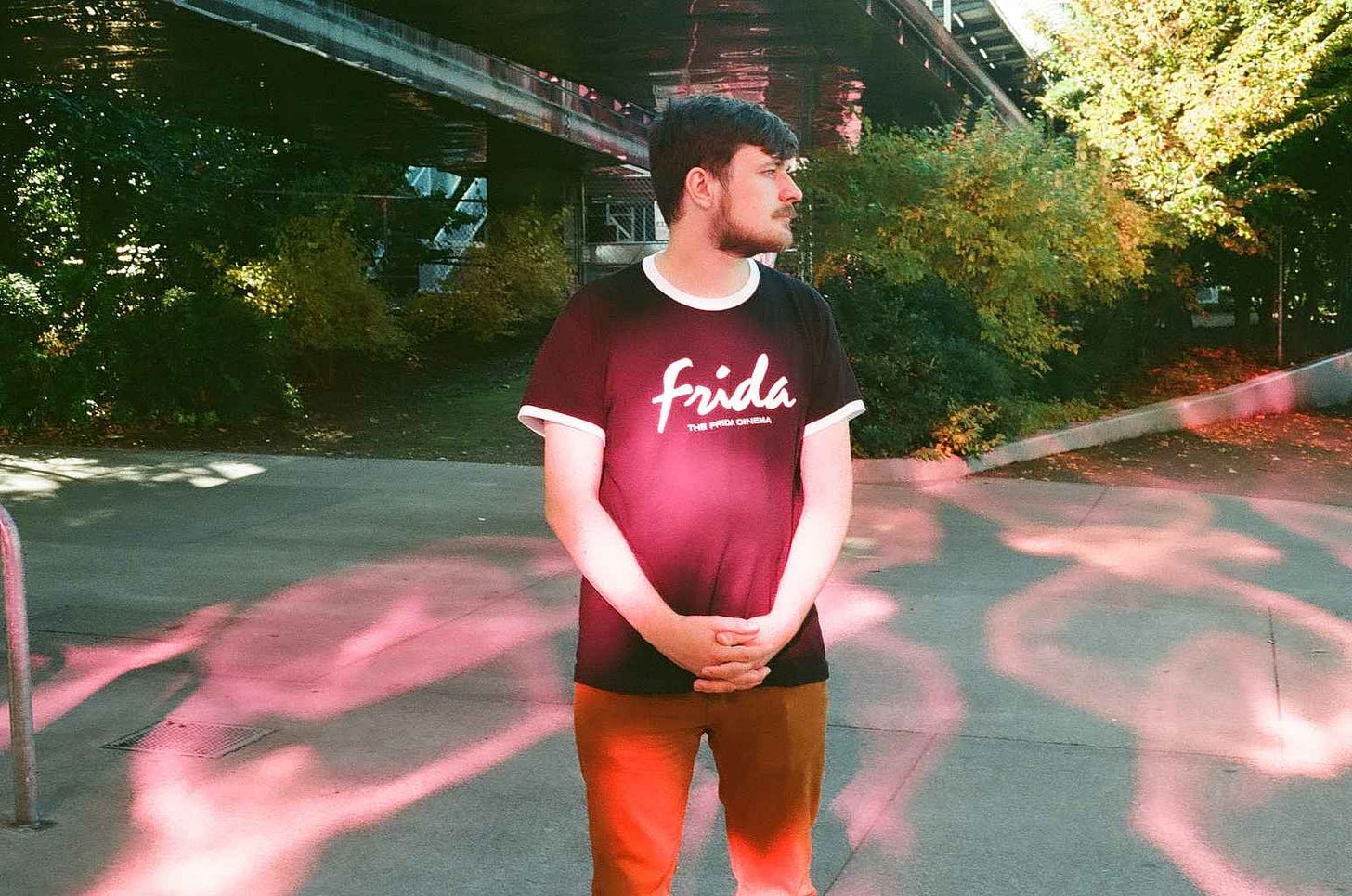
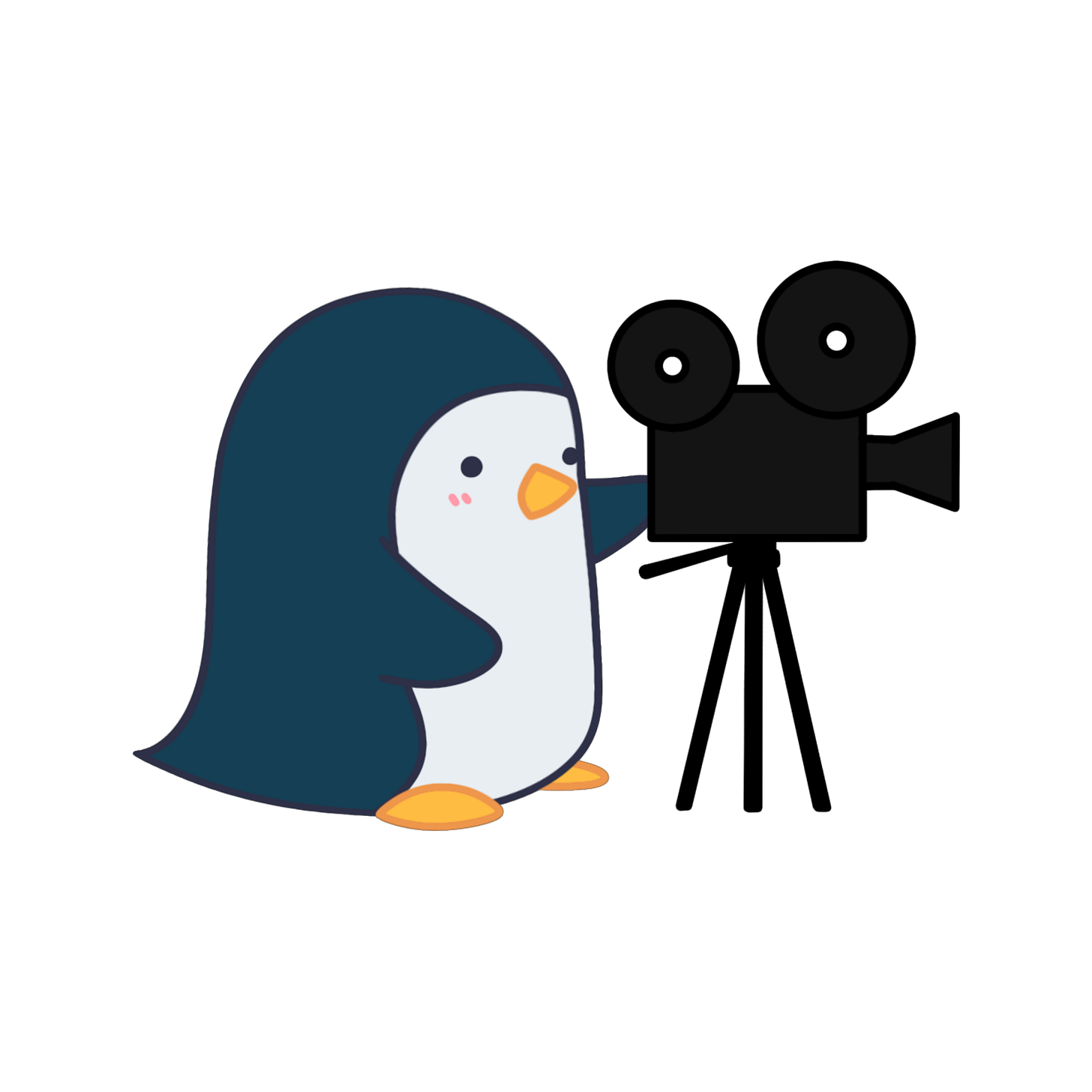
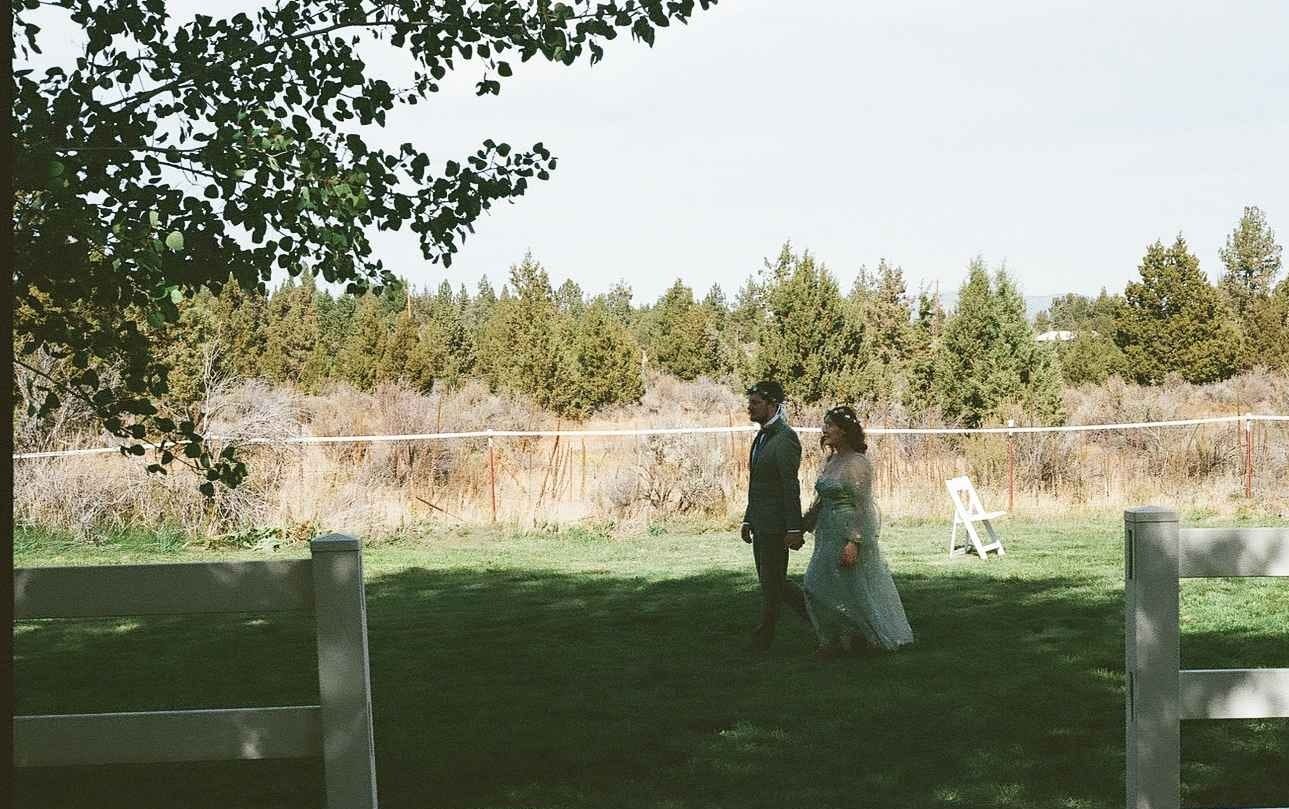
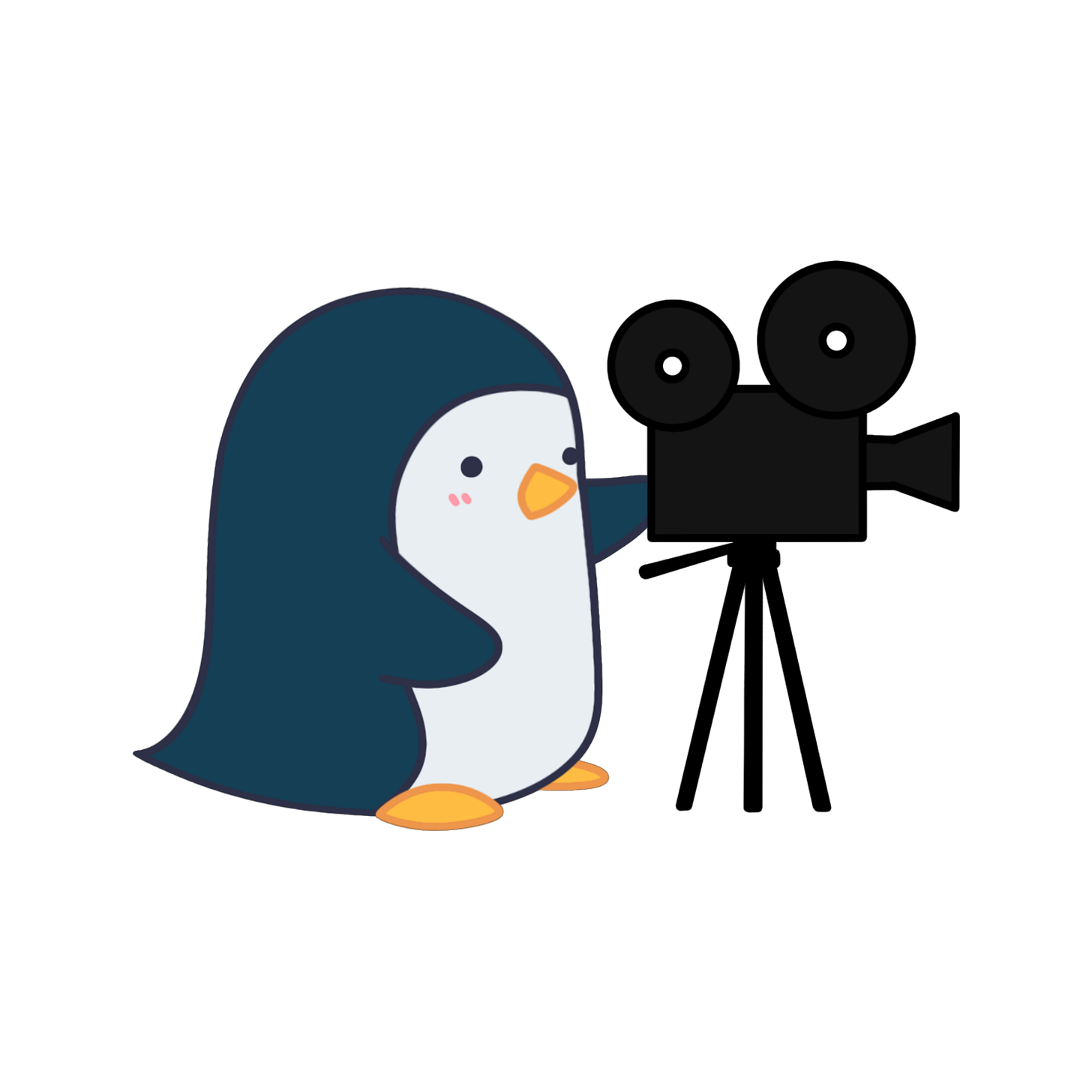
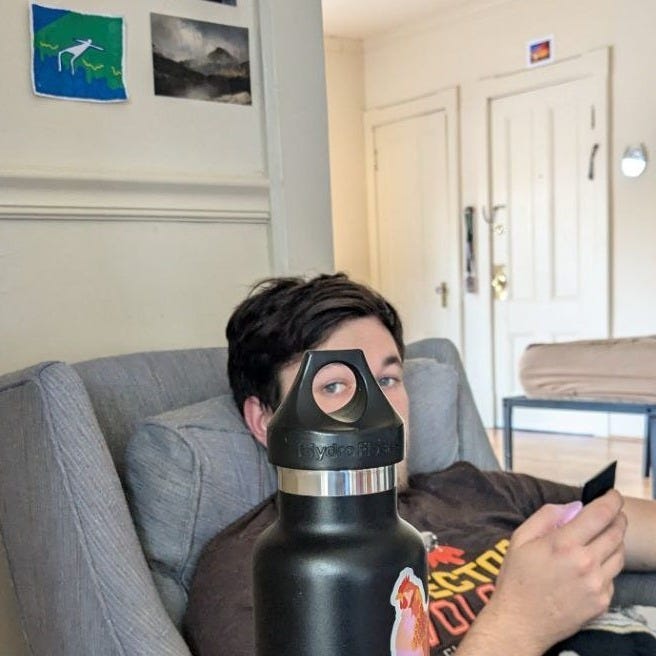

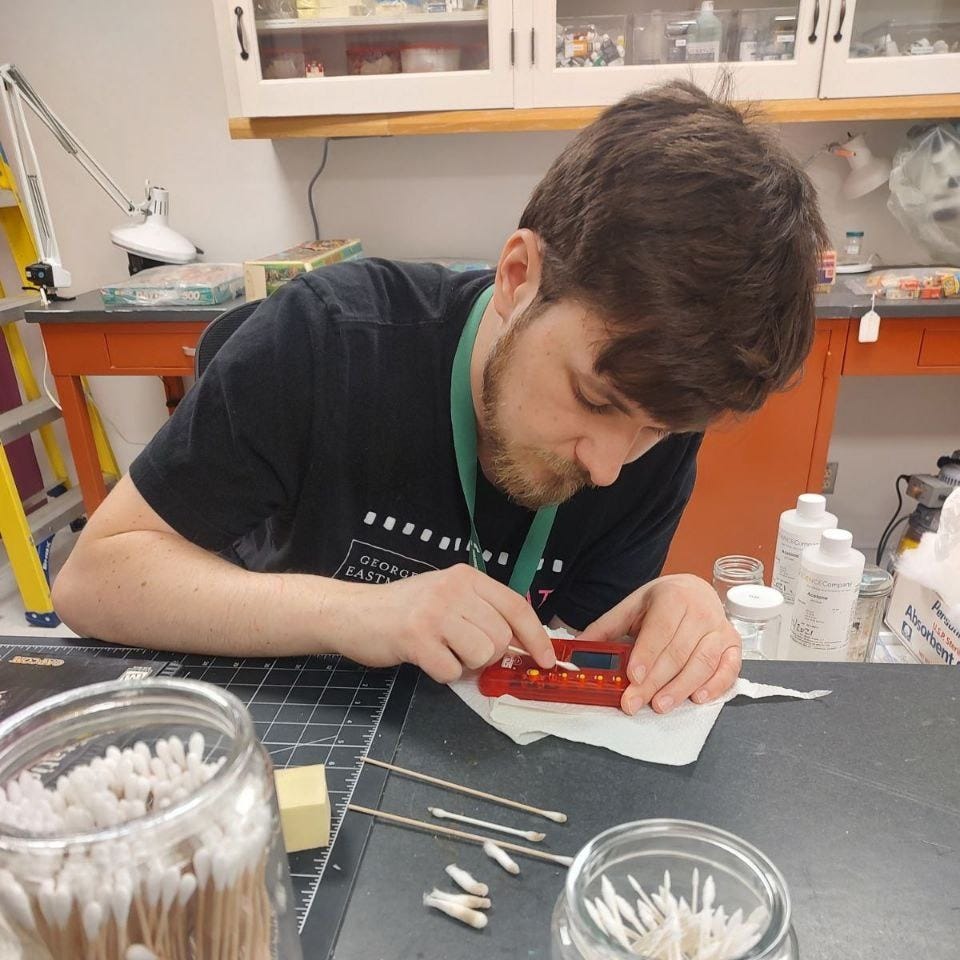

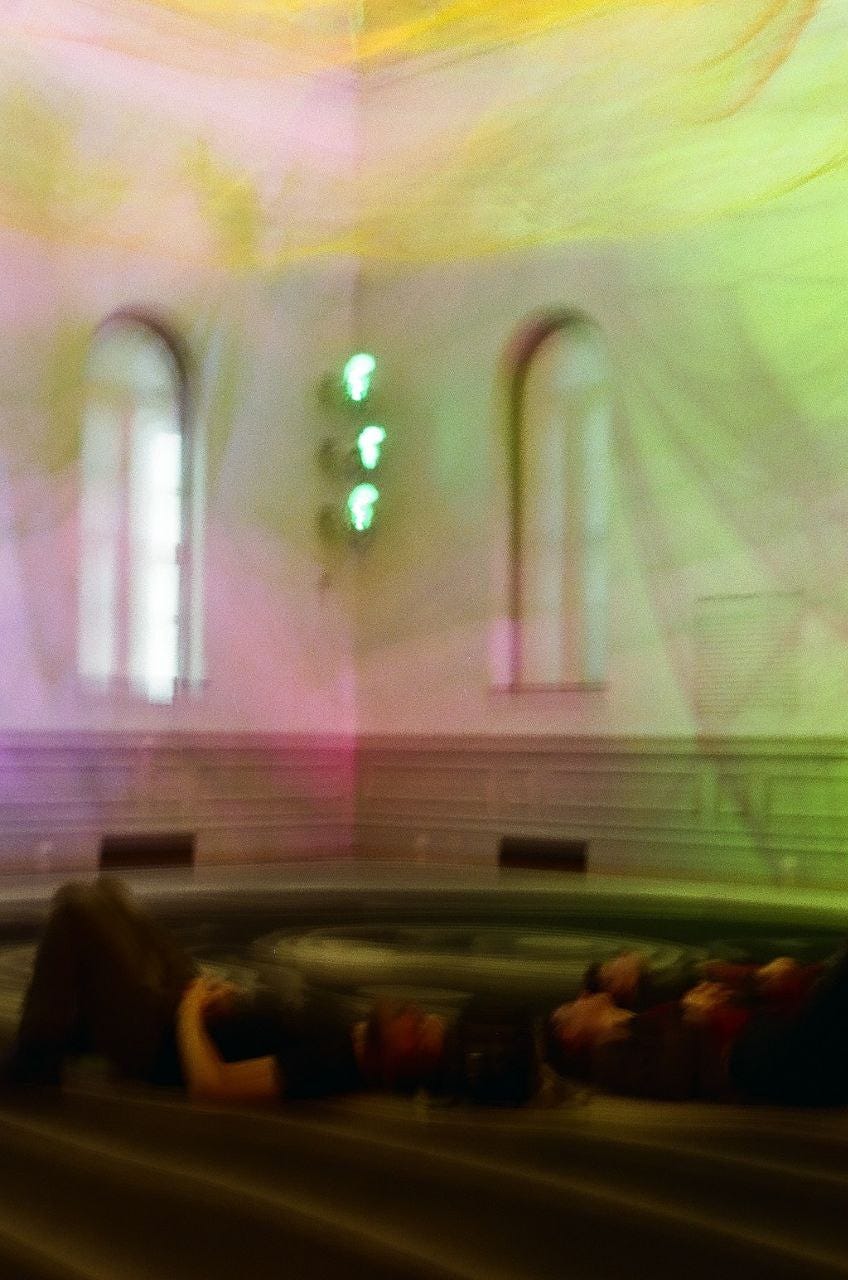
you can make that number 3 because I bought a cat s22 flip myself a few days ago :)
You and I are alike in our quest to become bookbinders. Keep up the good work 👍🏼